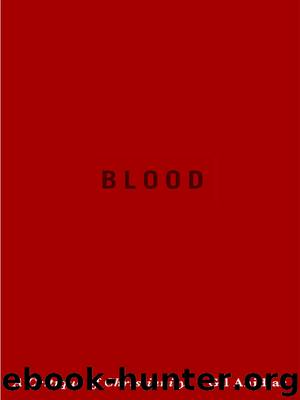Blood by Gil Anidjar

Author:Gil Anidjar
Language: eng
Format: azw3, mobi, epub
Tags: -
Publisher: Columbia University Press
Published: 2014-03-06T05:00:00+00:00
Conclusion ON THE CHRISTIAN QUESTION (JESUS AND MONOTHEISM)
“MURDER,” DERRIDA WRITES after Freud, “begins with the intention to kill. The unconscious knows no difference here between the virtual and the actual, the intention and the action (a certain Judaism also, by the way).”1 From Oedipus to Moses, between Athens and Jerusalem, murder begins with the intention to kill. But where does it end? When is murder over and done for? How and how long does it linger? Is murder, like mourning and like analysis, terminable or interminable? If everything begins with a murder, if the past, the very foundation of law and society, the creation of a people (or of a religion), are predicated on murder, would the end of murder, the murder of all murders, spell the end of that people, the end of human society or of humanity? Or would it herald a new beginning? A new humanity? What, in other words, is the future of murder? And would it really apply to all and any murder? Are there different kinds, different versions or translations of murder? What would such difference, what would its disappearance, mean anyway? To what procedures of verification could it be amenable? Would it translate the exhaustion of each murderous action or the abolition of every intention to kill? Would the virtual and the actual, finally at peace and identical at last, spell the end of murderous violence? Is this the way murder ends? With a bang and with a whimper? Is that the future—the ends—of murder? Whatever happens, however it all ends, it is difficult to imagine that it could be pretty (but you already knew that, by now). Seriously now, the future of murder? What is that really? Is it even possible? Is it any different from the future of an illusion, indeed, from the future of a delusion?
The concluding argument I wish to offer suspends, at least in its more manifest dimensions, the question of blood and turns, as if more directly, to the Christian question. The association of blood and murder was and would have been too facile anyway, and all too general. It certainly could not exhaust the “critique of violence” with which I began. My point of departure here is in any case different and relatively straightforward, perhaps even obvious: Freud’s Moses and Monotheism is a book about murder, and about a catastrophic change in the history of murder. Wo es war…. There, where murder was, Freud seems ultimately to tells us, religion shall emerge. And something else than “religion” too. Call it another scene. Religion is indisputably important for Freud, but murder—this too should be obvious—is much bigger than religion. Let us grant instead that murder frames or reframes the question of religion otherwise. Which religion? I shall proceed by asking instead: Which murder? Which history of, and for, murder? What future for it? Murder is, after all, at the center of a text most notorious perhaps for its retelling of the primal murder as well as for the analogy it makes between writing and murder.
Download
This site does not store any files on its server. We only index and link to content provided by other sites. Please contact the content providers to delete copyright contents if any and email us, we'll remove relevant links or contents immediately.
The Gnostic Gospels by Pagels Elaine(2531)
Jesus by Paul Johnson(2362)
Devil, The by Almond Philip C(2332)
The Nativity by Geza Vermes(2230)
The Psychedelic Gospels: The Secret History of Hallucinogens in Christianity by Jerry B. Brown(2157)
Forensics by Val McDermid(2094)
Going Clear: Scientology, Hollywood, and the Prison of Belief by Lawrence Wright(1985)
Going Clear by Lawrence Wright(1968)
Barking to the Choir by Gregory Boyle(1822)
Old Testament History by John H. Sailhamer(1815)
Augustine: Conversions to Confessions by Robin Lane Fox(1773)
The Early Centuries - Byzantium 01 by John Julius Norwich(1745)
A History of the Franks by Gregory of Tours(1729)
A Prophet with Honor by William C. Martin(1725)
Dark Mysteries of the Vatican by H. Paul Jeffers(1723)
The Bible Doesn't Say That by Dr. Joel M. Hoffman(1681)
by Christianity & Islam(1634)
The First Crusade by Thomas Asbridge(1610)
The Amish by Steven M. Nolt(1574)
